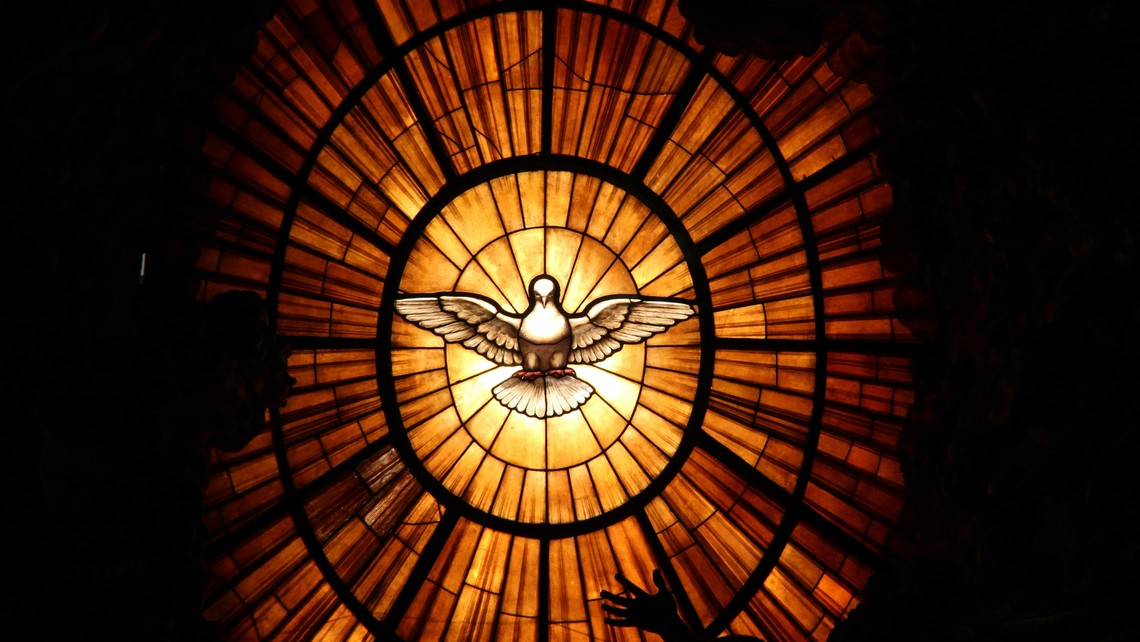
There is a distinctive pause the moment a parent witnesses their child's Baptism. This momentary pause of pure awe and wonder is quite natural because it reveals the intimate love a parent has for their child. It expresses a desire for their child to receive everything necessary to strengthen the awe and wonder that are witnessed by both parents, the child, and the community. When the Priest proclaims the words of Jesus Christ and proceeds to initiate the child into the Kingdom of God in the name of the Father, and of the Son, and the Holy Spirit, the gift of grace, which is the free and undeserved help that God gives to respond to his call to become children of God (CCC 1996) is immediately thrust upon the child and witnessed by all present. The child is now officially claimed by God through Jesus Christ, the Son, and confirmed by the Holy Spirit.
It should surprise no one that what was just described is a real event, the literal administration of a sacrament specifically meant to initiate a human being made in the image and likeness of God to permanently become part of the family of God in the Catholic Church. Hence, the seal of baptism can never be undone; it is permanently unbroken. Now, the journey takes a different turn; the newly baptized will require constant spiritual nourishment in the Catholic faith. A holy urgency exists to strengthen the faith of the child and not to allow the awe and wonder witnessed at baptism to diminish or, worse, become unrecognizable altogether.
As a child matures both in age and wisdom, the urgency to view the world through a Catholic lens becomes more important. The grace received at baptism serves as the initial step to help the child grow and mature in his awareness of God as Father and Creator, himself as a child made in the image and likeness of God, and his place in this world under the guidance of his parents, but even more by the Holy Spirit. The urgency to continue the child’s awareness of his faith takes a significant turn upon preparation to receive the sacrament of Confirmation and eventually the Holy Eucharist. The sacrament of Confirmation, which is part of the sacraments of initiation along with the Holy Eucharist, specifically completes the graces the child received at baptism by an outpouring of the gifts of the Holy Spirit through an anointing with chrism. Confirmation imparts a permanent seal and an indelible mark in union with Jesus Christ to go forth and actively live a life representative of the Apostles.
The Catechism of the Catholic Church reminds us that in the sacrament of Confirmation, the baptized are more perfectly bound to the Church and are enriched with a special strength of the Holy Spirit. Hence, they are, as true witnesses of Christ, more strictly obliged to spread and defend the faith by word and deed (CCC 1285). The reality of the sacrament of Confirmation is that it has nothing to do with the maturity of the soul based on age. Reception of the sacrament of Confirmation is intimately tied to the sacrament of baptism to complete the graces received at baptism, as mentioned previously. It is not a sacrament based on the emotional awareness of the child. It is also not a rite of adult passage from adolescence to adulthood. The book of Wisdom reminds us that for old age is not honored for length of time, nor measured by number of years (4:8). The administration and reception of the sacrament of Confirmation was never meant to serve as a model of youth ministry to keep a child incarcerated in a parish religious education program until he/she received the sacrament of Confirmation never to be seen again until perhaps marriage preparation. The principal aim of the sacrament of Confirmation is to strengthen the child’s ability to know and understand God through the grace received at Baptism. This is where the reality of the sacrament is authentically understood; to provide the child from the very beginning of their life with the opportunity to view and live in this world through a Catholic lens.
Our children deserve the opportunity to embrace and proclaim a personal relationship with Jesus Christ at an earlier age, to confront a world that does not hesitate to remind them that there is no need for God in their lives. This battle between grace and sin is a direct result of a child choosing to leave the Catholic faith due to a sense of ignorance, hate, or worse, indifference, which can no longer be ignored or simply explained as a simple cultural fad. Thus, the Diocese of Columbus is taking the necessary steps to help parents and families strengthen, affirm, and resuscitate the Catholic faith of their children by lowering the age of Confirmation to age nine to ten to better align with what the Catholic Church actually teaches about the sacrament of Confirmation.
Entrusting this process under the guidance of the Holy Spirit, may we as a family of God seek to provide our children the opportunity to relentlessly desire an active and loving relationship with Jesus Christ.
“But it is God who establishes us with you in Christ, and has commissioned us; He has put His seal upon us and given us His Spirit in our hearts as a guarantee.”
2 Cor 1:21






